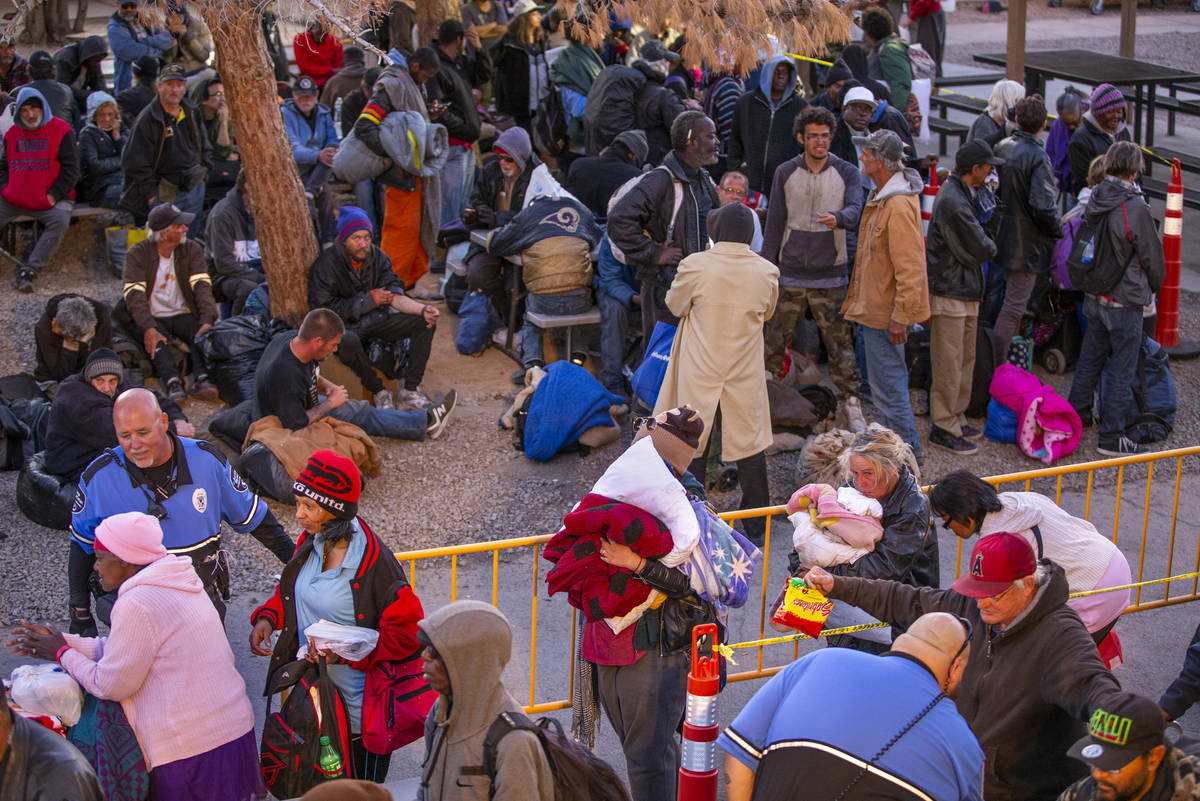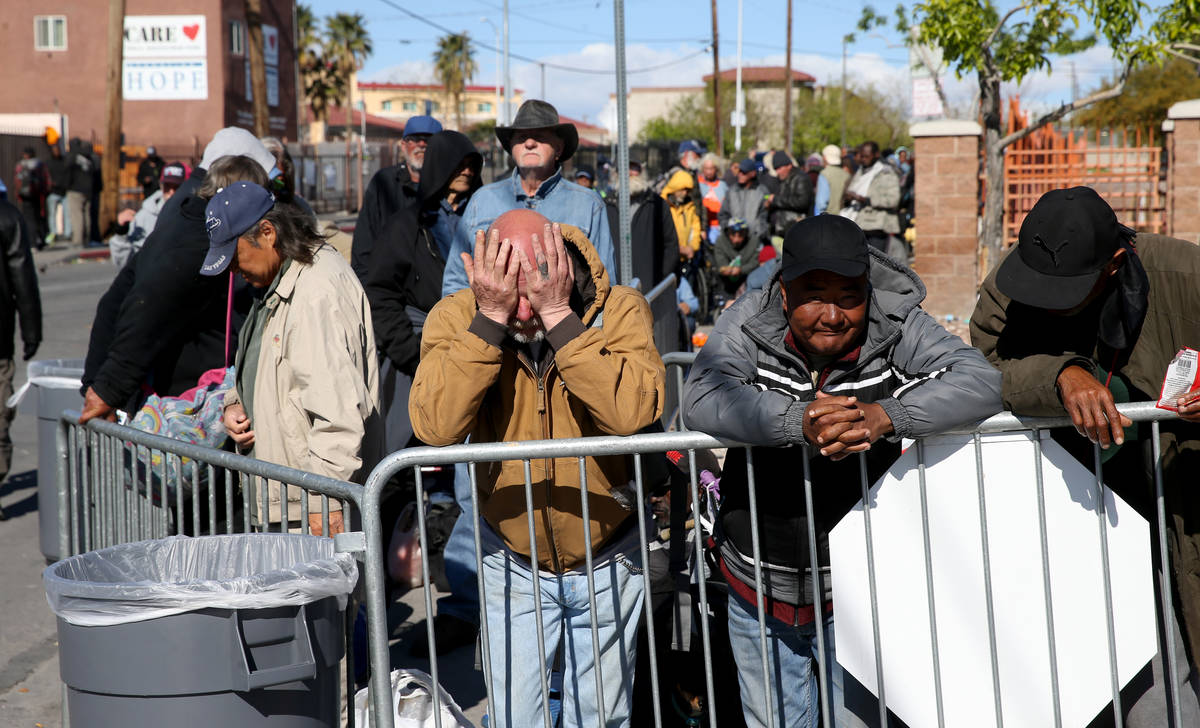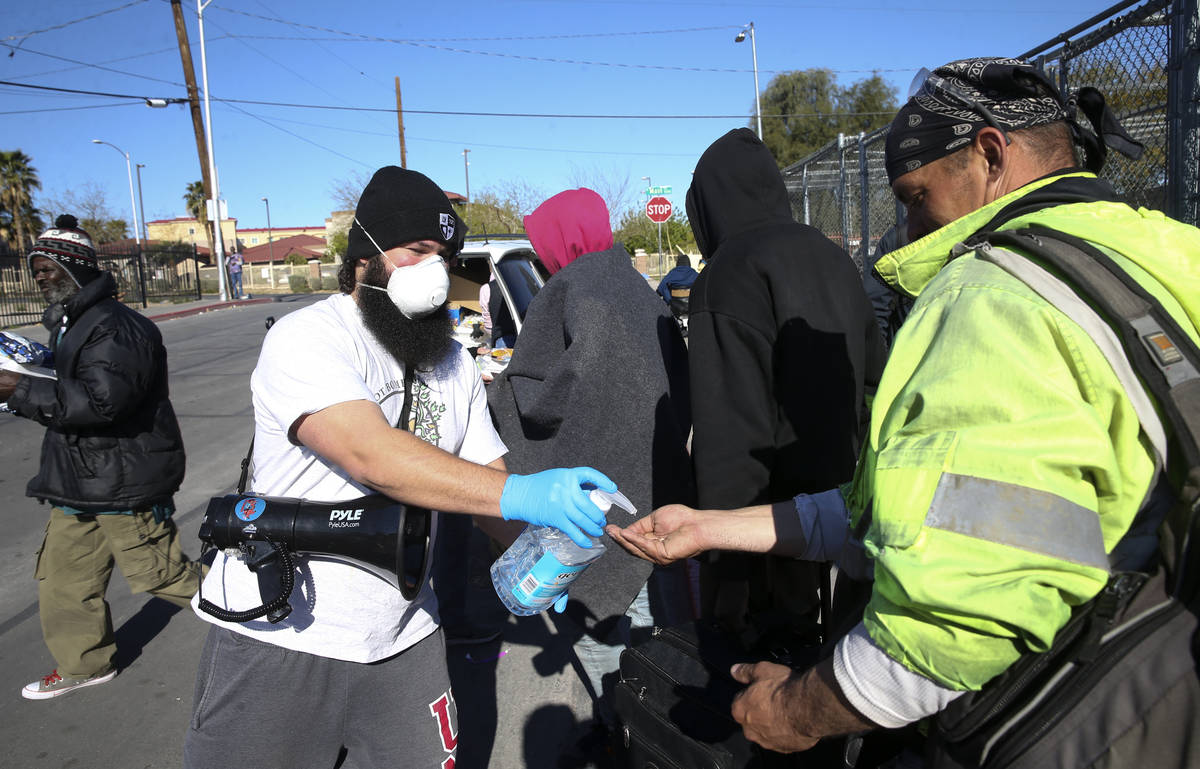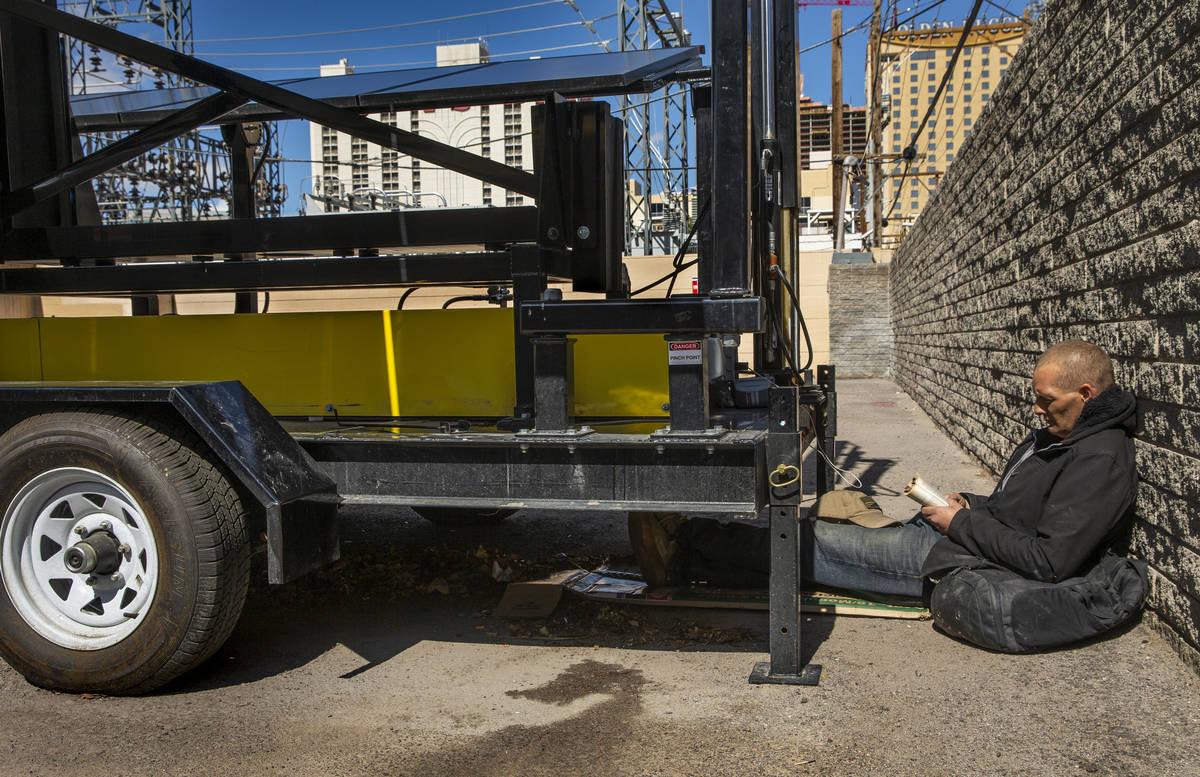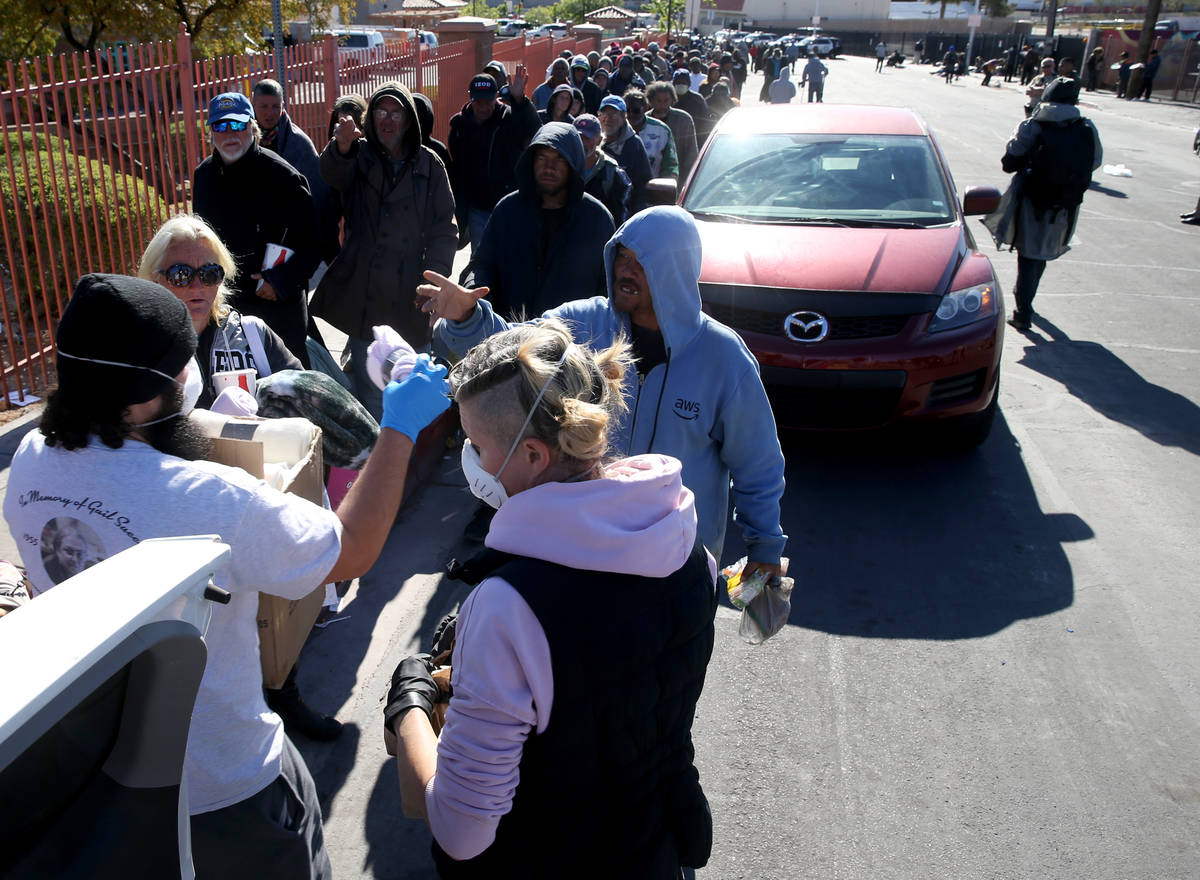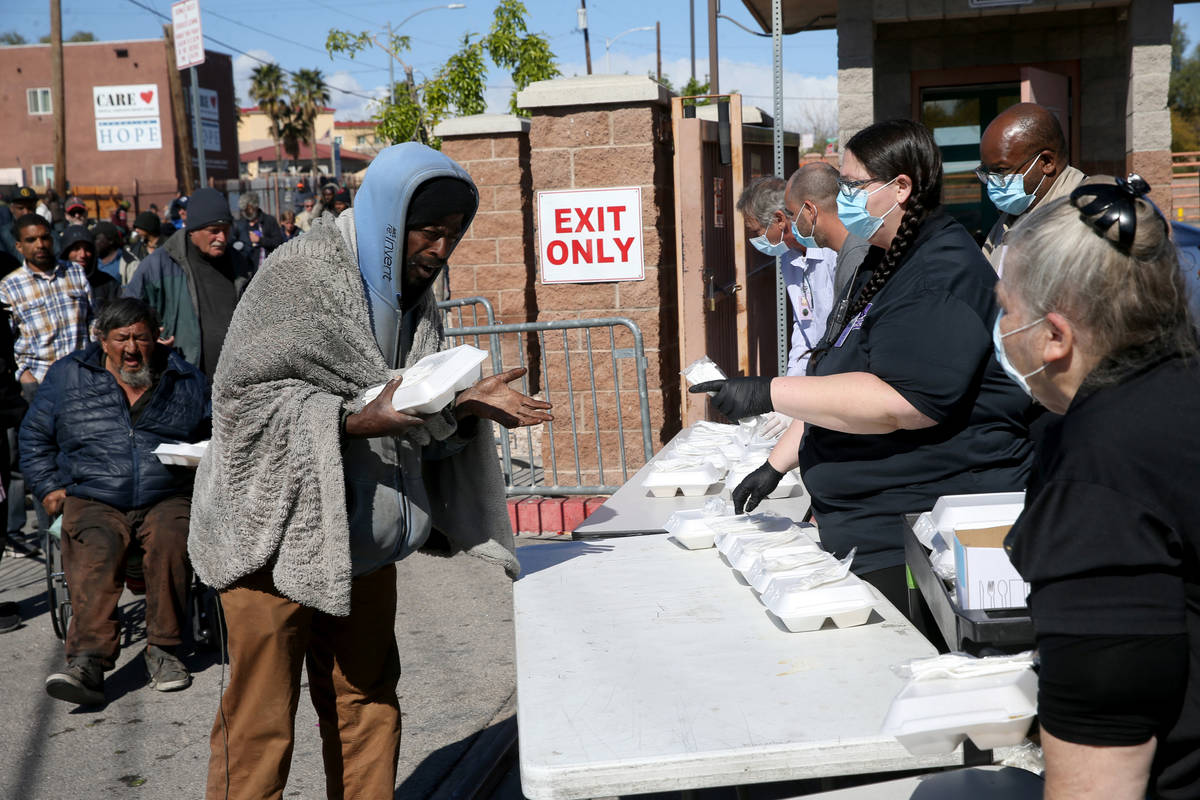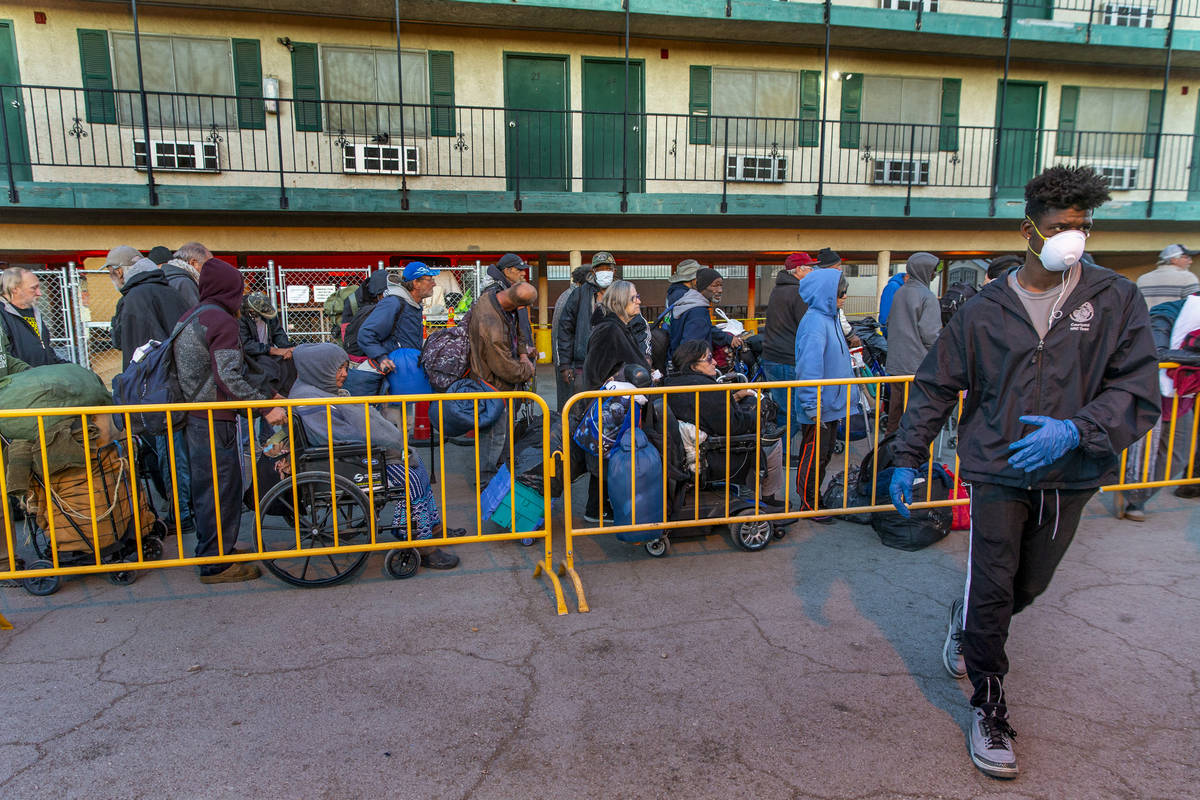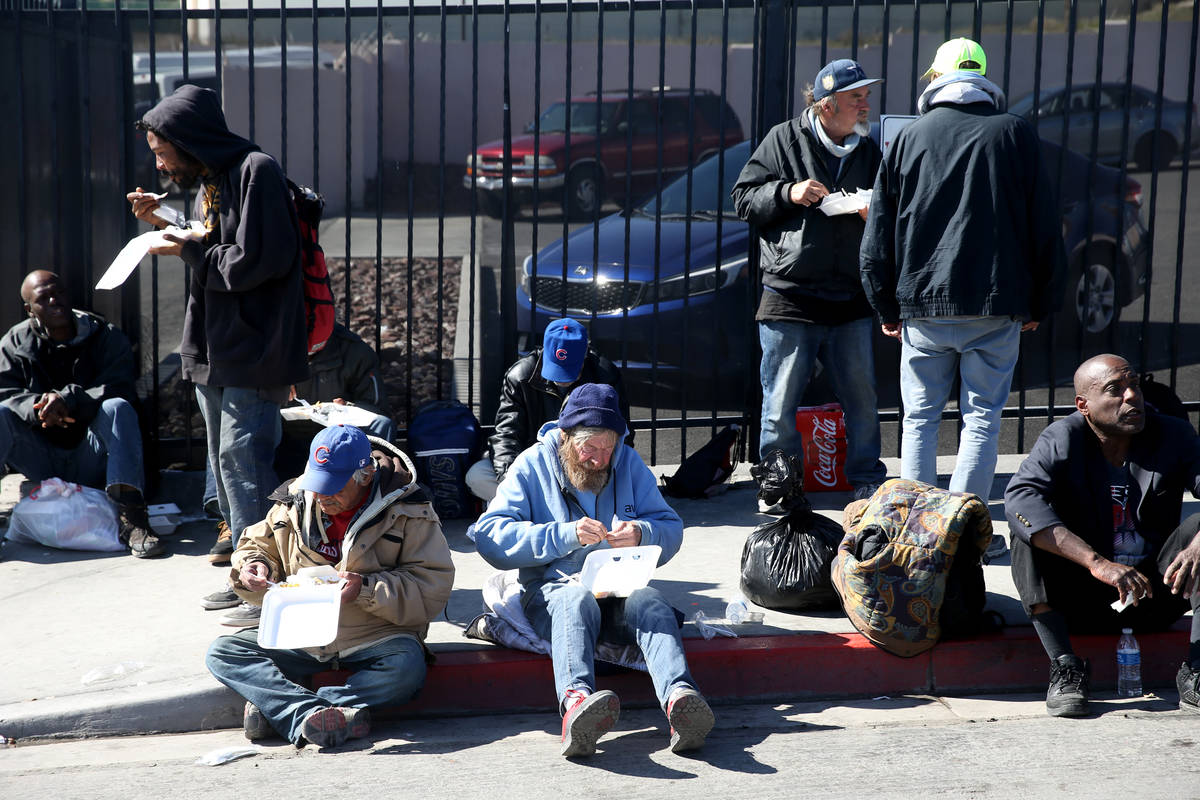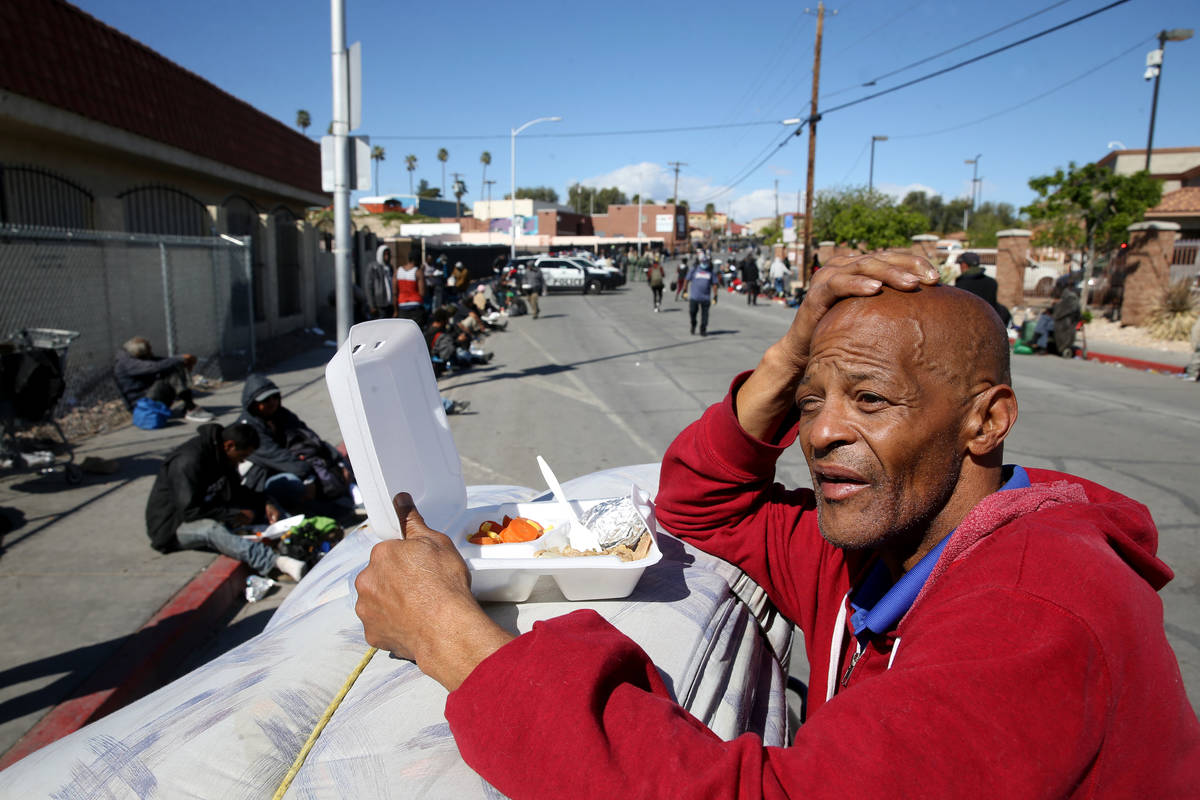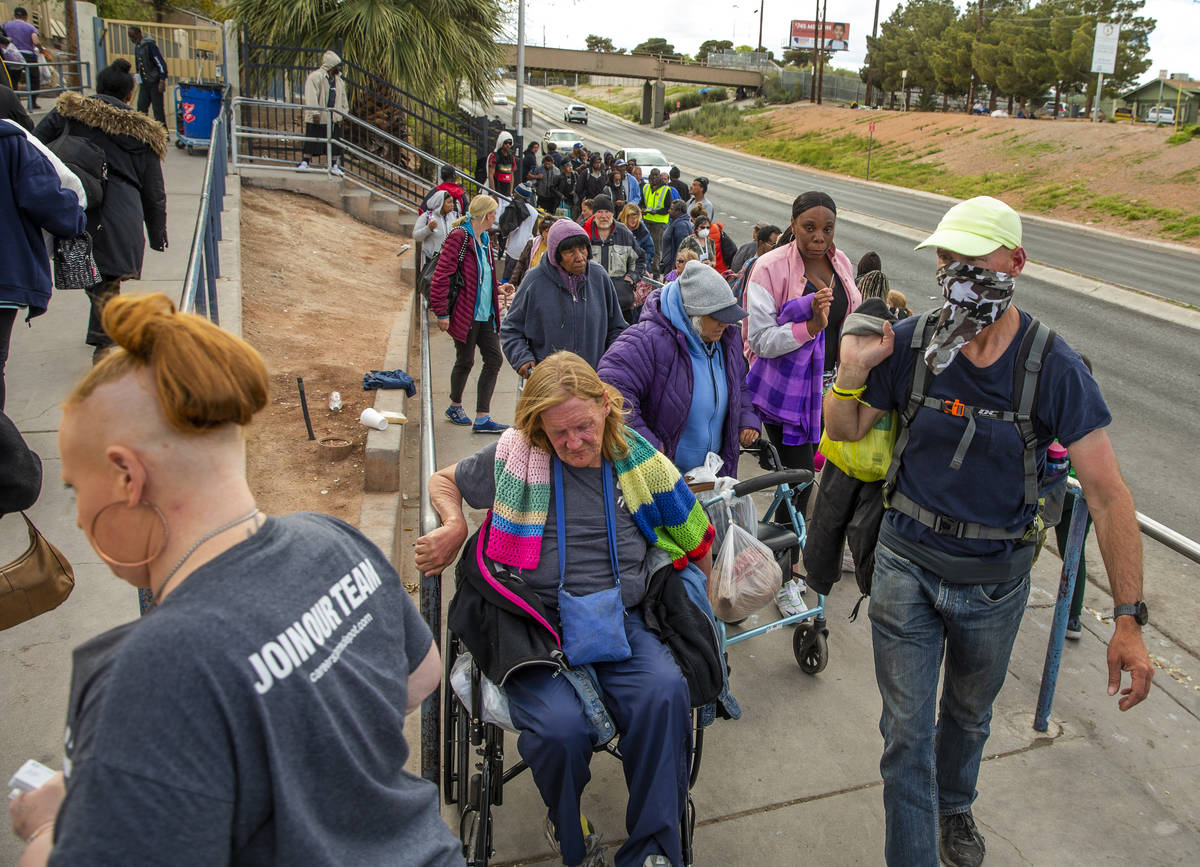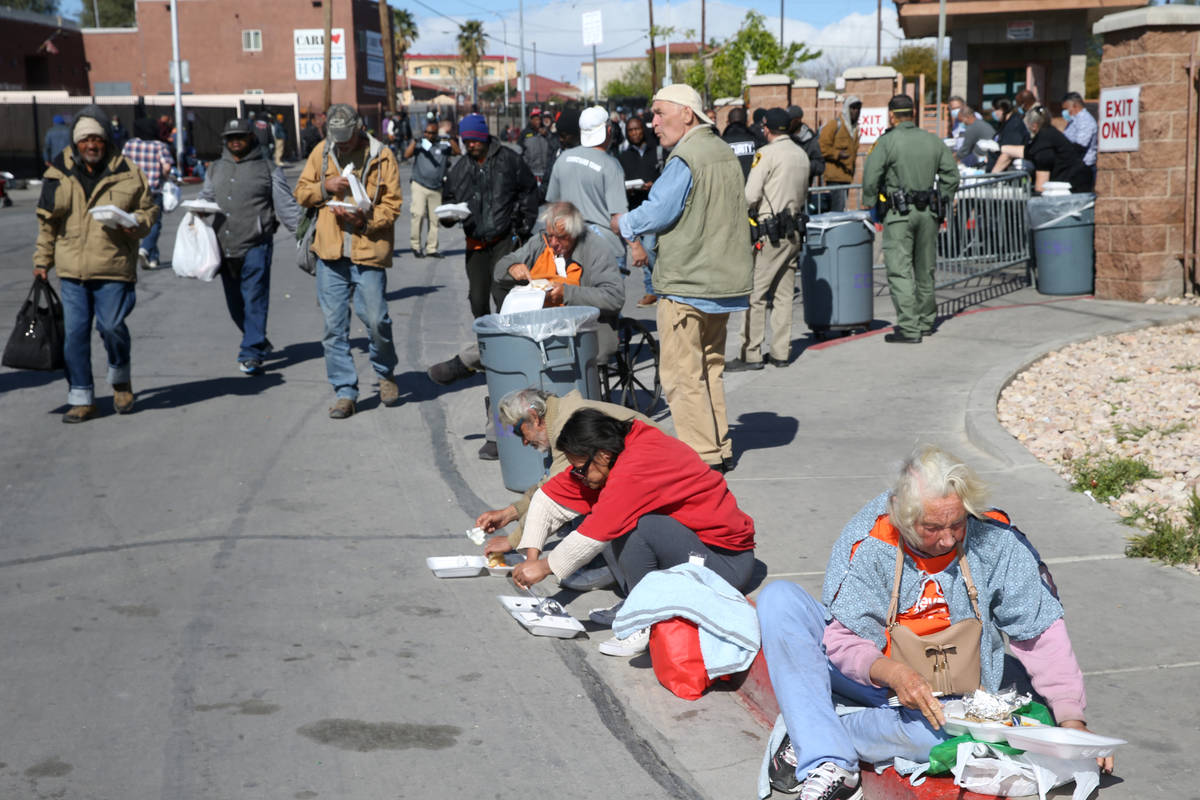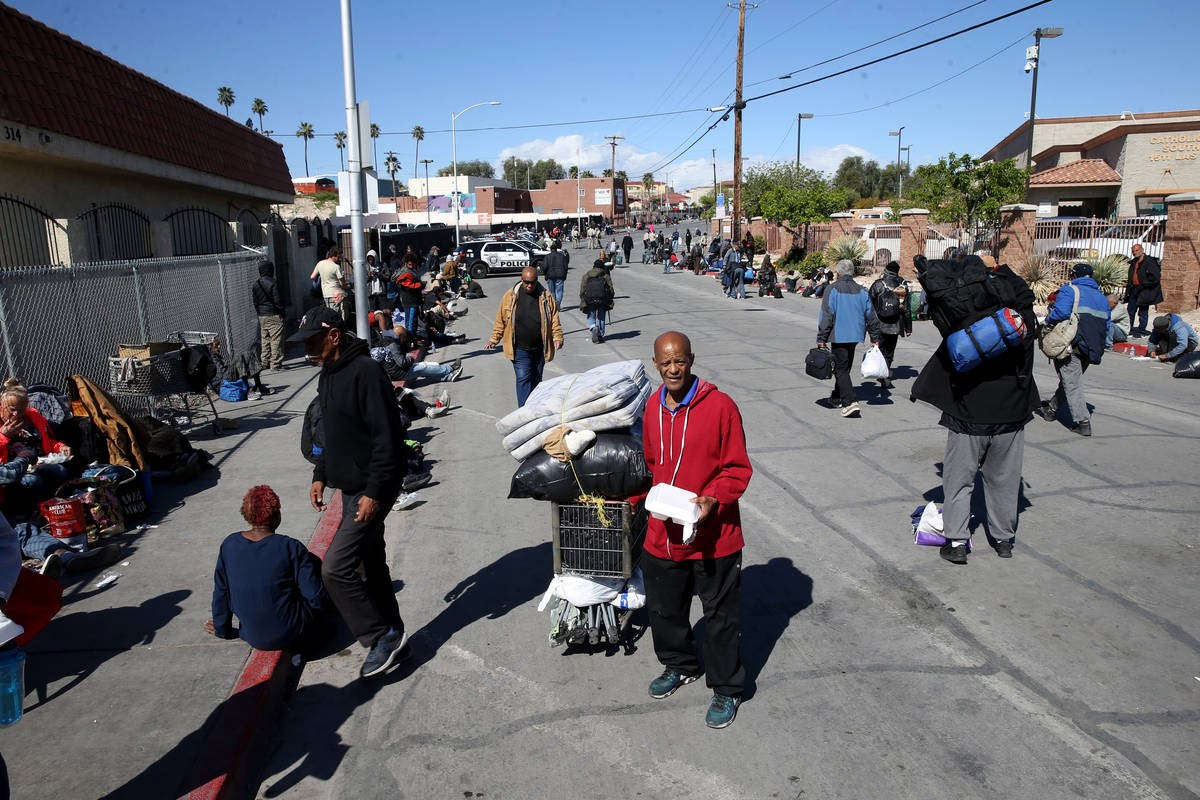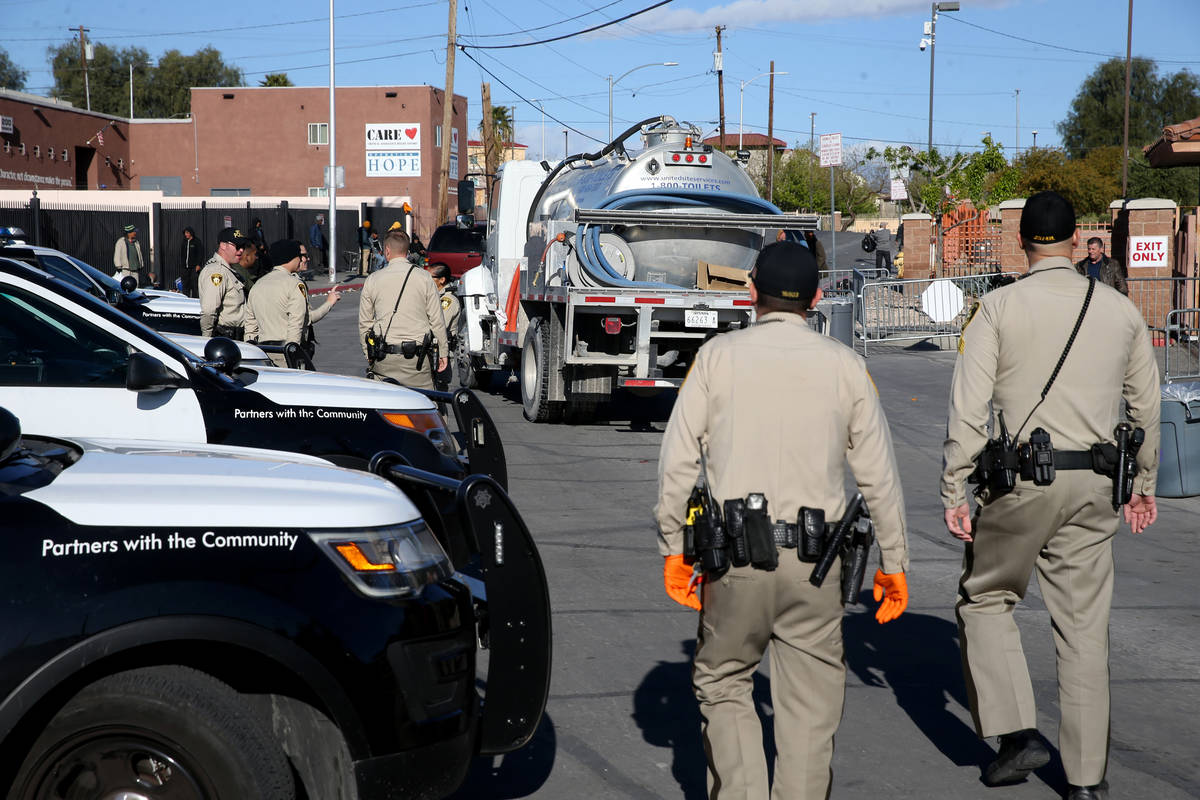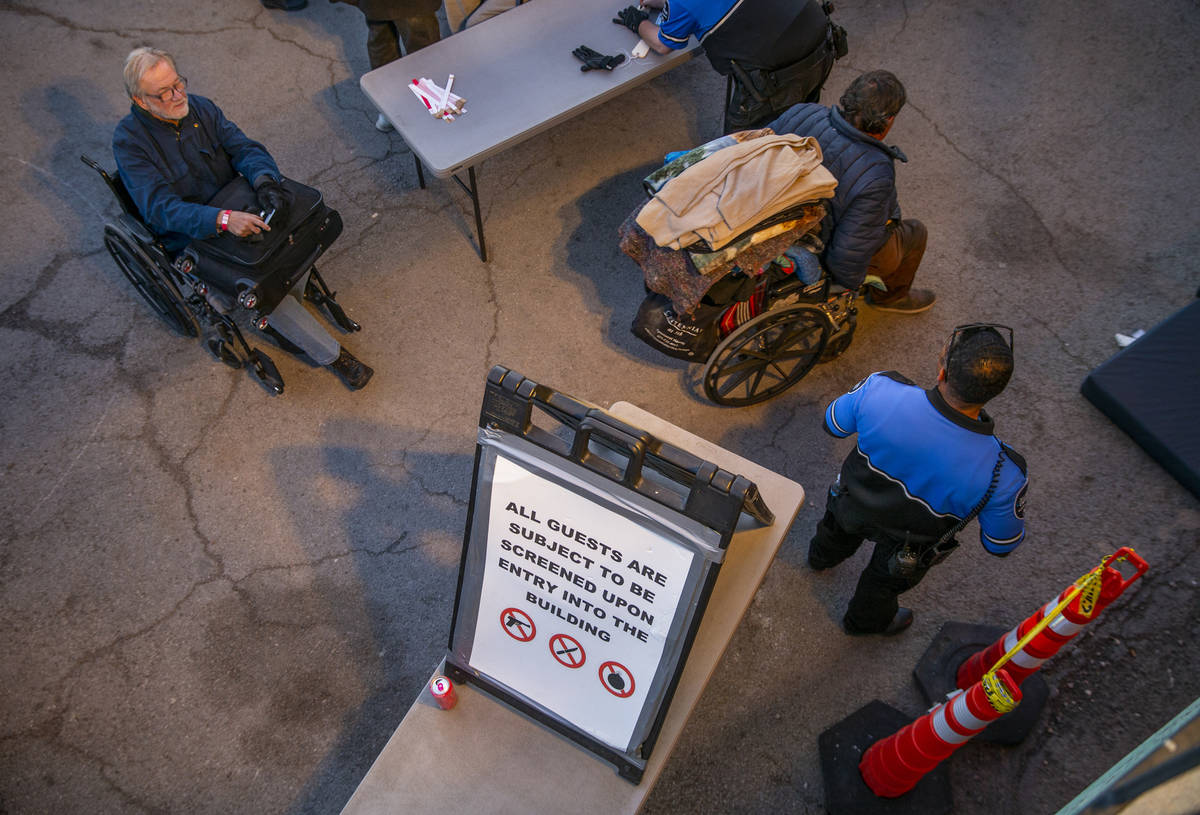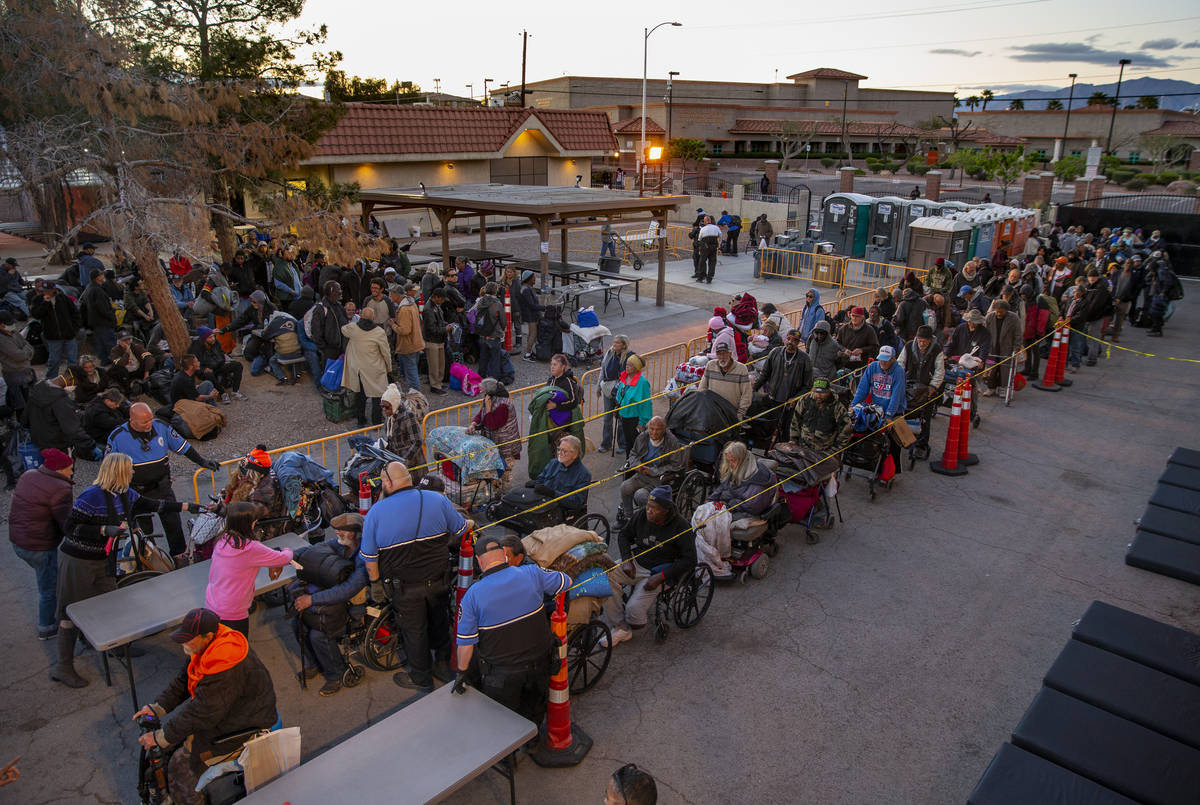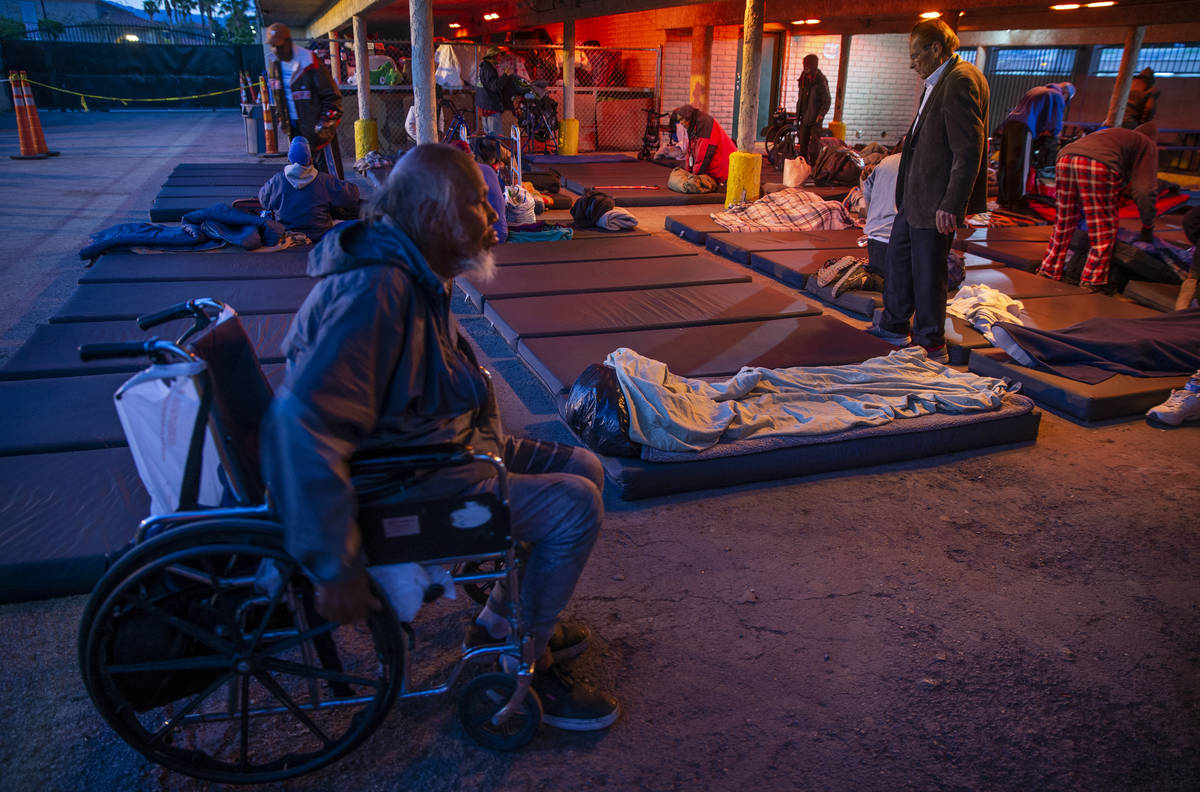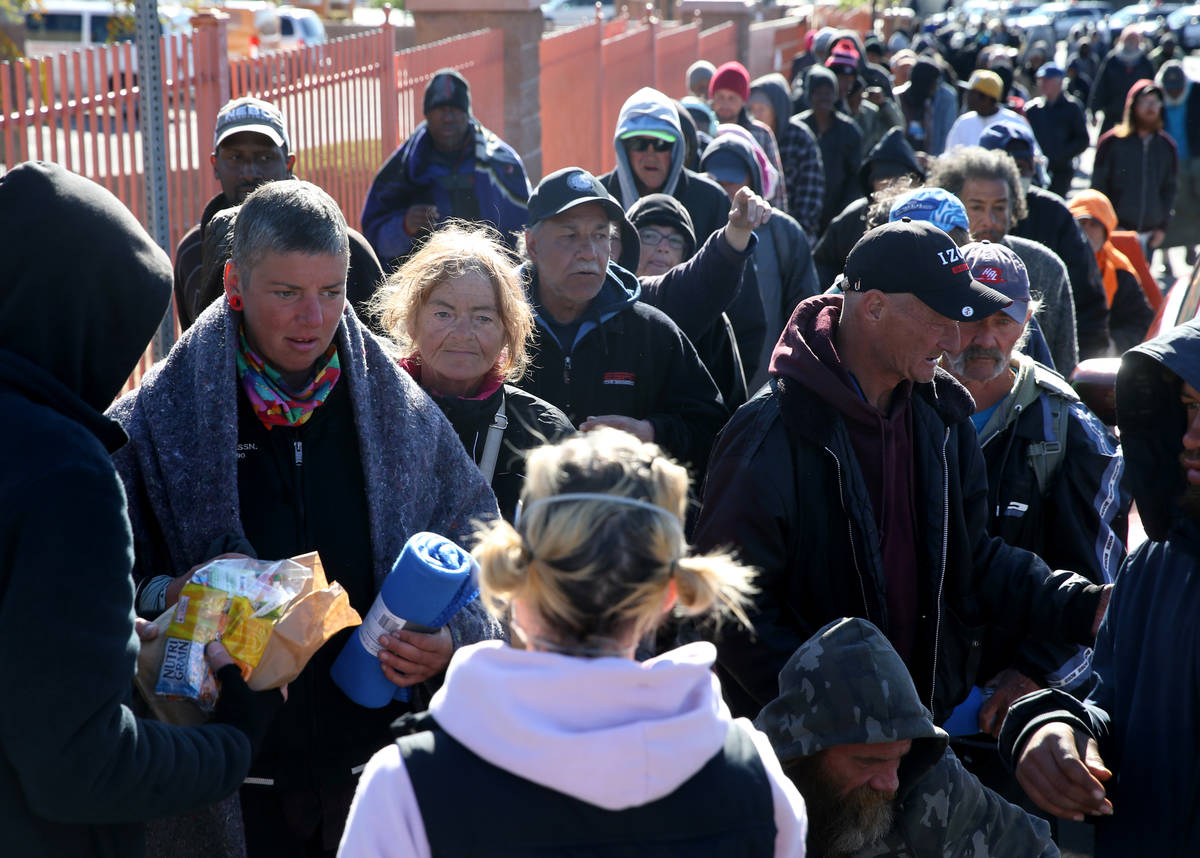Las Vegas may use Cashman Field for homeless housing
Las Vegas officials plan to house up to 1,000 homeless people at Cashman Field, perhaps in a tent complex, in response to the novel coronavirus pandemic.
City Manager Scott Adams said the city is mulling three options: construction of separated areas at Cashman Field, setting up tents in the parking lot and renting out a vacant building “somewhere.”
“Our goal is to have that (plan) stood up as quickly as possible,” Adams told the Las Vegas Review-Journal.
Adams revealed the plan, which is being handled through the city’s emergency operations center, in an interview Wednesday — the same day the Southern Nevada Health District announced a homeless man had tested positive for COVID-19 after receiving services at Catholic Charities of Southern Nevada and the city’s Courtyard Homeless Resource Center.
In response, Catholic Charities has temporarily closed its emergency night shelter, which sleeps more than 500 men. Last week, the nonprofit announced that a worker at the shelter had tested positive for the virus.
Until one of the three options is ready to accommodate those in need of quarantine or isolation “on a triage flow,” Adams said, city officials are undertaking a rapid emergency expansion of the Courtyard “out into Foremaster Lane, making all of Foremaster the courtyard.”
Clark County said Wednesday that it had worked with city officials to “provide space for approximately 750 people to sleep” in the interim, and city spokesman Jace Radke said that “costs and logistics surrounding the possibility of opening Cashman on an emergency basis are still being discussed at this time.”
On Wednesday night 565 people slept overnight in the Courtyard — the most since it opened in 2018 and nearly double the nightly average — with additional people sleeping on the sidewalk, Radke said.
‘The least of our troubles’
While those living on the streets are still feeling uneasy about their cramped living quarters that make social distancing nearly “impossible,” other cities nationwide are opening hotels and motels to house the homeless.
In Reno, the city established a temporary overnight homeless shelter and has placed hand-sanitizer stations and portable restrooms throughout Washoe County. People are being directed to the Community Assistance Center for medical screening and isolation.
Talks of what to do in Clark County are still in the works.
Adams said that city officials understood the risk of having homeless people in the Courtyard and shelters, which promote hygiene but where people also congregate and sleep in close quarters.
On Foremaster Lane, large groups still huddle on the street and hundreds are corralled into the Courtyard, sleeping inches apart. A group of homeless people said the coronavirus was “the least of our troubles.”
On Monday, the dozen or so port-a-potties at the Courtyard were filled to the brim. There was soap at the hand-washing station, but the water had run dry. One man, 55-year-old Richard Beardall, gasped for air as he swung open the door to one toilet. He left without washing his hands.
“It’s disgusting. They didn’t clean them today. But we have no choice. We need gloves. We need something to protect us,” he said. “We’re sleeping so close we can touch each other. And there are mice that wake me up.”
Radke said United Services, which services the facilities, missed the Courtyard on Monday because “the demand for the company’s services has increased due to the pandemic.”
Vulnerable population
Adams acknowledged that it has been a “struggle” to maintain federal health guidelines during the pandemic.
“If we underscore anything in this crisis, it’s going to be that it is not healthy to sleep on the street,” he said. “It does lead to situations like we’re in now, and we really need to properly house our homeless population.”
In a letter sent out last week, the Nevada Homeless Alliance asked officials to mobilize the Southern Nevada Health District to provide street-based medical services and provide emergency funding to safely house homeless people through motel or hotel vouchers.
It also called for medical care for homeless people who are too ill or frail to recover from the virus on the streets and to enact a moratorium on Las Vegas’ camping ban, which makes it a misdemeanor to camp downtown or in residential areas.
Adams said the ban would remain in place.
Emily Paulsen, executive director of the homeless alliance, emphasized the need for policy action “to get people into motels and hotels and into trailers and vacant commercial buildings, where they can practice social distancing.”
“If they become infected or exposed, or if they require hospitalization, this is to make sure that our hospitals don’t become crowded for people who don’t have homes,” she said.
For those living on the streets, harm reduction is part of daily life. Outreach workers exchange dirty needles for clean ones to fight the spread of HIV and hepatitis. But COVID-19 complicates it all, from keeping shelters safe and sanitized from the virus to continuing a longstanding effort to prevent other communicable diseases from spreading.
Shelters have stopped hosting meals in their dining room, instead offering bagged lunches. Some homeless people are still able to go to Adult Day Care, but the closure of the senior centers and public libraries dealt another blow to the routine of some people who go there to feel safe.
The virus threatens some of society’s most vulnerable: the elderly and people with compromised immune systems. The homeless population, like the general public, has people in either or both of those categories.
“The situation in the so-called ‘Corridor of Hope’ is a ticking time bomb,” said Joey Lankowski, who feeds the homeless through Food Not Bombs. “Not protecting them is not only putting them at risk. It’s putting our entire city’s population in danger.”
‘So sad out there’
On one night in 2019, 5,530 homeless people were counted in Clark County’s shelters and on the streets. Of those, 60 percent were unsheltered.
One homeless man, 45-year-old Jason Miller, said he came to Las Vegas because he had a job. Then came the novel coronavirus. He was laid off weeks ago, before he even started, and was resigned to being homeless on the streets.
Normally, he might go to the shelter for services, but fear of the fast-spreading virus drove him out to the streets and into an abandoned building downtown that caught fire over the weekend. He and a handful of his friends were ticketed for trespassing when they tried to get back in.
“We’re trying to stay inside — what the president told us to do. Where in the heck do you want us to go?” he said as he shared a milkshake with one of his friends. “Being homeless is already a stigma, where people automatically don’t want to get close to us because we’re dirty.”
Near a drainage tunnel outside an encampment by the Rio, April Cook, who is camping by herself, said she and her friends weren’t quite sure where the virus was coming from.
To combat the spread, they pool their money together to bathe and drink purified water instead of running water and wash their hands with soap.
“We’re trying to be careful with touching stuff, how we pour our drinks and share,” she said. “All it takes is one person and it will spread through the whole group.”
Cook’s hands, caked black with asphalt and rubber, were a sign of a night scavenging for cans and bottles to sell. Usually, she fairs about $10 an hour, but with nobody on the Strip, she said she’s “more broke than ever.”
With much of the public social distancing, food donations have also dropped. The Salvation Army, which Wednesday night added 90 mats and opened up a downstairs shelter, said it was in desperate need of bottled water and other hygiene kits.
“It’s so sad out there. … I’ve never been asked so much for food in my 10 years of doing this,” said Merideth Spriggs, who heads the homeless nonprofit Caridad and has been providing outreach and coronavirus education to homeless people.
“I talked to a lady who said, ‘What the hell am I supposed to do when everything is closed?’ ”
Contact Briana Erickson at berickson@reviewjournal.com or 702-387-5244. Follow @ByBrianaE on Twitter. Contact Shea Johnson at sjohnson@reviewjournal.com or 702-383-0272. Follow @Shea_LVRJ on Twitter.



